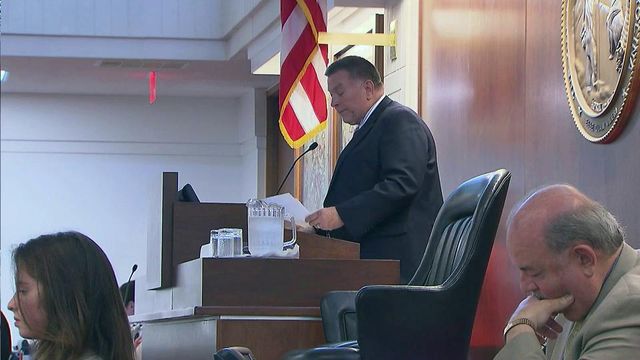House approves more leeway for consumers in property insurance rate changes
The House unanimously approved a property insurance reform bill Tuesday that provides homeowners more disclosure and more time to respond to proposed rate increases from their insurers.
Posted — UpdatedSo-called "consent to rate" letters allow insurers to charge rates higher than the maximum allowed by the state Department of Insurance if they obtain a homeowner's consent. The provision was put into state law decades ago for high-risk customers, but Insurance Commissioner Wayne Goodwin has said his office has been deluged with complaints in recent years that insurers use the loophole as a way to bypass the rate-change process and levy exorbitant increases on ordinary customers.
Rep. Chris Millis, R-Pender, said the bill would give consumers 30 days to respond to a consent to rate letter, noting some insurers now require a response within 10 days. The measure also would require insurers to spell out what exactly a homeowner is consenting to and to disclose any changes in policy renewals.
"This approach to consent to rate provides an ample timeframe, proper disclosure for the individual to make an informed decision and the proper balance to prevent any unnecessary red tape upon those who are writing (insurance) for our policyholders," Millis said.
The bill also would create a public bonding authority within the state's Coastal Property Insurance Pool, more commonly known as the Beach Plan, to handle catastrophic losses.
Lawmakers approved the high-risk property insurance pool in 2009, and property insurers must agree to contribute $1 billion to the pool in the event that a catastrophic storm depletes the pool's reserves.
Should the cost of the storm exceed that initial $1 billion, insurers would then turn to re-insurance – basically, insurance policies on the insurance industry – to cover the balance of the losses. As property values increase, so do potential losses for coastal insurers, which is why re-insurance cost has become an increasingly large part of the price of an average property insurance policy.
Millis said the bonds aren't back by the state, so taxpayers aren't at risk. The bonds are tied to policyholders, but he said they allow recovery of losses to be paid over time instead of immediately after a catastrophe.
• Credits
Copyright 2024 by Capitol Broadcasting Company. All rights reserved. This material may not be published, broadcast, rewritten or redistributed.






